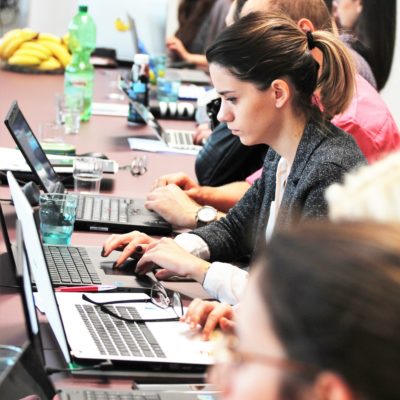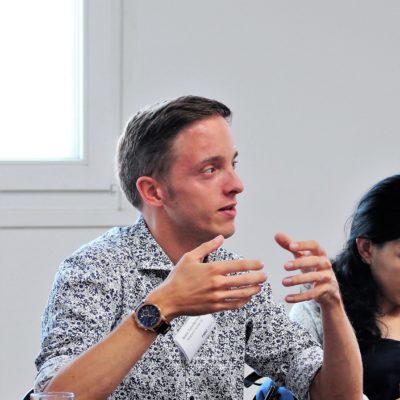Text by Mariell Raisma, Video by Marina Savchenko
Orange Magazine met Sabine Wessels, a project manager of two media events with which we have cooperated for many years – M100 Sanssouci Colloquium and Media Convention Berlin. With Media Convention she started already in 2014 while M100 is the first year for her.
“It is difficult to compare organising M100 and Media Convention,” she explains. Media Convention has a big team where different departments are taking care of organising it. For example, she is responsible for the content and the speakers, but M100 has three-four people as a core of the team, and they have to take care of everything, from a topic of the conference up to when the speakers arrive at the airport and bringing them with a car.
Media conferences as a compass
“M100 is designed to bring people into a room and to be attentive, concentrated on what is going on inside this room,” explains Wessels, how an atmosphere of these conferences is very different.
Media Convention is a huge event that has more of a character of a festival – people are coming, people are going, people are taking different pieces for Twitter, for Facebook, always communicating outside of the room and the event itself.
M100 gathers political journalists who discuss – among others – the impact of digitization on classical media when Media Convention brings together people who already went with the flow and looking forward the new trends, developments they could pick up and join.
In her opinion, M100 can be seen as a classical and traditional conference which has more the dynamic of a traditional media because people pay attention, gather information, and write about it. “Which will hopefully have a long-lasting impact on their work at home,” she adds.
Young people can teach how to adapt to media
The general trend for media conferences is the trying to communicate in time to have an impact on the outside and to have a bigger multiplication with the help of social media. “We are now also having Facebook live-stream to make people join us from outside,” Wessels says.
In her opinion, media conferences should try to be a compass – to show the direction of media developments are taking in future. “This should be the focus of the modern media event, to help journalists and media people to go along with the new technologies and to find their way in all this kind of jungle of new technologies, new developments and applications,” she says.
Wessels is not sure if there is a need for another media event. However, she feels with many conferences, that there is an older generation which is still struggling with new developments. “We need more events where we could discuss how to get the best out of these changes. I think there are many media conferences which need a more modern approach to this issue.”




